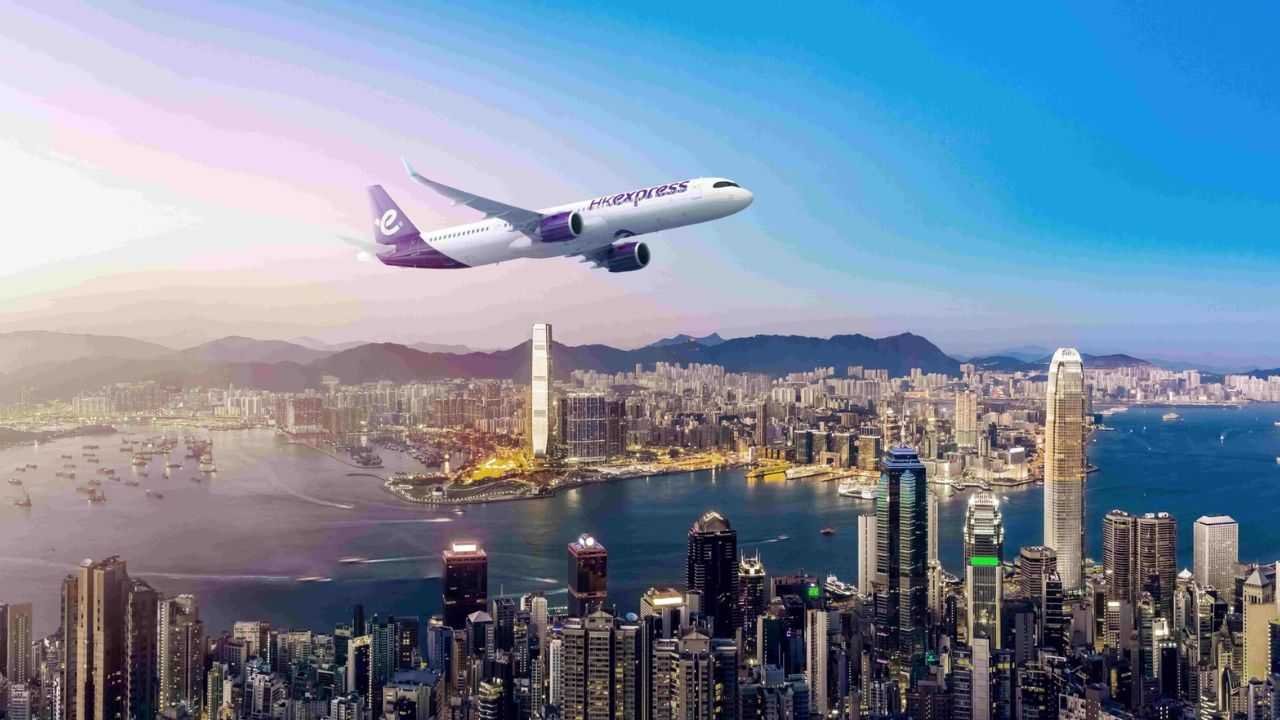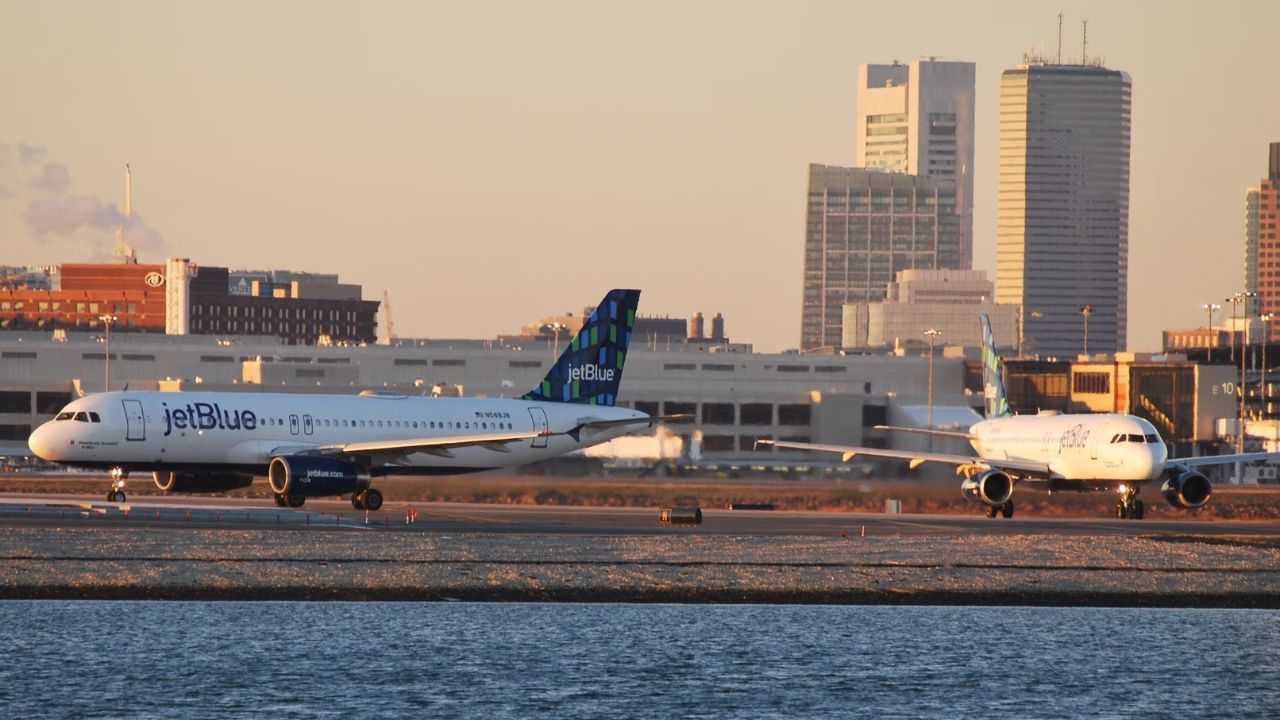In the rapidly evolving world of international air transportation, many of us may wonder, “Is E-Express an airline?” No, it’s not an airline in the traditional sense. It is a logistics service provider that uses air transportation to guarantee delivery on schedule. In this blog, you will get complete details on E-Express, its functionality, future scopes, and more.

What is E-Express?
“E-Express” describes a unique type of expedited express shipping service for packages that are ordered online. Rather than being an airline per se, it is a logistic service that makes use of a variety of transportation methods, including air freight, to guarantee prompt and dependable delivery. Postal services and other third-party logistics providers, especially those who collaborate with airlines and other transportation companies, are frequently linked to e-express services.
The Role Of Air Transport in E-Express
Air Freight/Cargo
Airfreight, also known as Cargo plays a crucial role in E-Express’s operations. Despite not owning or operating its aircraft, E-Express promises faster delivery, and this depends in part on the capacity and speed of air travel. In other words, to deliver packages on time, often within a few days, E-Express depends on specialized air freight carriers or leases cargo space from commercial airlines.
Airline Partnerships
To help with air transport, these E-Express services typically collaborate with large airlines and cargo carriers. By using this strategy, they can utilize almost all of the global routes that are accessible, which guarantees quick and dependable delivery to a variety of locations worldwide. The alliance benefits both the airlines and the E-Express suppliers; the former achieves its goal of quick delivery, while the latter gains more money from cargo.
Operation of E-Express
E-Express services run according to a predetermined protocol that guarantees the lowest wait times and highest productivity. The following steps make up the majority of this:
- Order Placement: Through a variety of e-commerce websites that offer E-Express as a shipping option, customers place their orders.
- Consumption: Sellers or approved drop-off sites deliver packages to a central processing facility.
- Sorting and Processing: Following identification, the packages are arranged according to their intended destinations and made ready for shipment. For shipments coming from overseas, this might also entail clearing customs.
- Air Transport: After that, the packages are transported by air to their original locations. Because the packages are loaded onto flights bound for different locations, the relationship with the airlines must be maintained.
- Last-Mile Delivery: In this scenario, packages are picked up by local couriers or postal workers when they arrive in the destination nation and are then delivered the last-mile to clients.
Technological Presence
Technology plays a significant role in how E-Express’s services function. Parcel goods will be handled swiftly by automated sorting facilities, sophisticated logistics software, and tracking systems. Customers will feel more at ease with greater transparency thanks to real-time location capabilities.
E-Express Geographic Coverage
Among the characteristics that make E-Express outshine others is its global presence. While most of the other posting services are not global, E-Express services are. This becomes very critical to e-commerce companies that ship goods to their clients abroad.
Destinations Served by E-Express
It is especially popular in regions with significant e-commerce activity, which are mostly North America, Europe, and Asia. Large e-commerce websites also offer E-Express as an option for preferred shipping when orders are placed from overseas. No matter where they are, it offers package delivery in a few days to its customers.
Advantages of E-Express
- Speed and Efficiency: The speed of E-Express sets it apart from the competition. With efficient logistics procedures and air transportation, E-Express delivers packages far more quickly than the conventional method. This is encouraging for any e-commerce company trying to fulfill orders promptly and for customers who want their orders delivered on schedule.
- Cost-Effective: E-Express can be very economical even with its speed, particularly when shipping small packages. This is because cargo space is readily available on airlines, and several logistics companies collaborate with the company to reduce expenses, rendering it highly appealing to both consumers and businesses.
- Reliability: E-Express services are incredibly dependable. The customer is constantly informed about the shipment status of their cargo thanks to the integration of technology, which tracks the package from its point of origin to its destination. This lowers the frequency of misplaced or delayed packages and raises client satisfaction.
Challenges Faced by E-Express
- Customs: E-Express services have encountered challenges such as the complex network of customs regulations and import/export limitations across various nations. This is because shipping parcels by air requires rapidity; however, packages may be delayed if necessary paperwork is not completed or if the necessary protocols are not followed. To expedite the clearance process, the E-Express service’s stakeholders must communicate with the customs authorities.
- Capacity Scarcity: This does not negate the possibility that demand for air freight may exceed capacity during peak seasons, such as holidays or sales, causing service delays. To ensure that there is no chance of a service outage, this requires e-Express service providers to manage cargo space in advance.
- Environmental Issues: At the center of the logistics problem is an important ecological issue related to air travel. In this instance, e-express would have a significantly higher carbon footprint from air freight due to its speed than any other mode of transportation. E-Express providers need to find ways to reduce their carbon footprint or participate in carbon offset programs to do so, as environmental awareness is growing.
E-Express Future Scopes
These are the following trends and possibilities for the future of E-express:
- Trends: One of the sectors where the future will emphasize ongoing development in connection to e-commerce and the expansion of global trade is e-express. Therefore, future growth in online shopping suggests that there will likely be a sharp increase in demand for prompt and dependable shipping services. To meet the increase in demand, e-express providers are anticipated to expand their networks, increase their technological expenditures, and look for new alliances.
- Technological Advancements: Technology development will be one of the main forces behind E-Express’s future. Blockchain technology, automation, and artificial intelligence all have enormous potential for use in logistics to improve customer experiences, reduce costs, and increase productivity. For example, blockchain technology could offer greater transparency in tracking and verifying shipments, while AI-driven analytics could optimize inventory management and routing.
- Ease on Environment: Increasingly, sustainability will be the watchword for E-Express players. As consumers become more and more environmentally conscious, there will be pressure on logistics companies to minimize their carbon footprint, which could translate into introducing greener technologies, such as electric vehicles for last-mile delivery and carbon-neutral initiatives.
Final Words
Consequently, E-Express is neither an airline nor an airplane. It is a significant player in the logistics industry, particularly in e-commerce. E-Express is a coordinated service that provides quick and secure handling of goods shipped to customers worldwide via air transportation while utilizing cutting-edge and effective logistical technology.
It faces obstacles like capacity limits, legal challenges, and environmental concerns just like any other service. Consequently, to maintain a competitive advantage in the expanding logistics industry, E-Express needs to adapt and innovate in response to the increasing demands for delivery speed.
Frequently Asked Questions
Is E-Express an airline?
E-Express is not an airline. It is a logistics service provider.
What are E-Express shipments?
Express shipments, typically parcels from online retailers, are handled by E-Express, a specialized logistics service. It uses multimodal ground, air, and sea transportation to deliver such packages swiftly.
Is E-Express an airplane?
No, E-express is neither an airplane nor an airline.
Does E-Express have its fleet for distribution?
E-Express subcontracts commercial airlines and cargo carriers for airlift capacity to move parcels; it does not own its fleet of aircraft.
How is E-Express different from traditional airlines?
Traditional carriers focus on moving people and goods from one location to another, but E-Express is a logistics company that offers end-to-end package delivery.
Does E-Express serve internationally?
Without a doubt, the most popular for shipping internationally is E-Express. More specifically, it will cover online purchases that arrive in multiple nations swiftly.
What are the advantages of E-Express?
Numerous advantages stem from the efficiency, speed, and prompt delivery of E-Express technologies. Parcels in E-Express are guaranteed to arrive at their destinations quickly thanks to air transportation. The likelihood of a package going missing or arriving late is significantly decreased thanks to modern tracking systems, which keep an eye on shipments in real-time.









